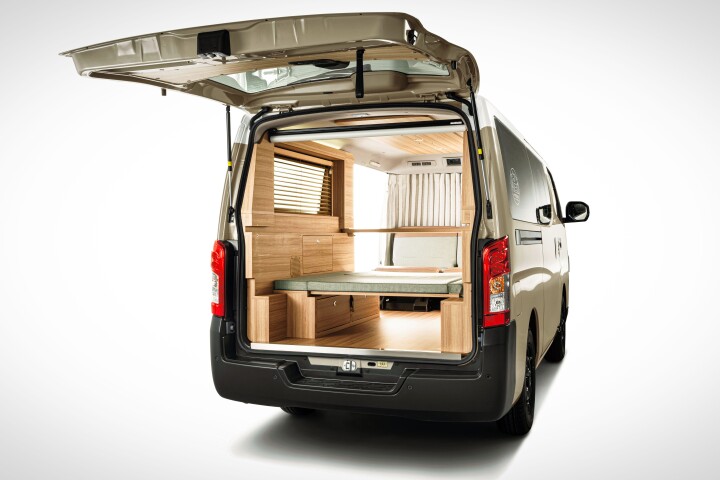Million dollar cars are a dime a dozen these days in the collector world. Nearly 1,400 cars have sold for more than a million dollars at auction, but until earlier this week, only 25 cars had ever sold at auction for more than US$10 million.
On Wednesday evening, a 1960 Ferrari 250 GT short-wheelbase (SWB) Berlinetta (chassis 1995 GT – one just 167), sold for £7,392,000. The car had been donated from the estate of pre-eminent British V12 Ferrari collector, Richard Colton, to benefit the Royal National Lifeboat Institution (UK). With an exchange rate of 1.54758854, that gave the car a sale price of $11,439,774, making it the 26th car in history to sell for beyond the magical mark.
The 250 GT was one of two cars donated by Colton's Estate to the Royal National Lifeboat Institution, the other being a 1967 Ferrari 275 GTB/4 which sold for £2,161,600 ($3,345,267), lifting the late Richard Colson's bequeathment to near $15 million dollars.

Ten million dollar cars tend to self-select their owners. You cannot own a ten million dollar car without being absurdly wealthy. Ten million dollar car buyers hail exclusively from the tribal group known as Ultra High Net Worth Individuals (UHNWI), most of whom also have a very large diversified investment portfolio.
There is a growing global trend for younger, less traditional UNHWI to diversify their asset portfolios into "investments of passion" such as collectible cars, sports memorabilia, vintage guitars and motorcycles.
One of the beauties of investing in rare Ferraris (apart from the astonishing appreciation in value), is that you also get to enjoy this investment by driving, riding or playing with your hyper-expensive toy. This seems like a fine alternative to having shares or any other intangible investment which is notionally little more than a set of numbers on a spreadsheet. All share certificates are the same, but blipping a V12 with the same accelerator pedal used by Fangio, or holding the same handlebars once gripped by Mike Hailwood, or strumming a few chords on one of Eric Clapton's guitars before bedtime adds some real sizzle to an investment.
Buying one of these cars also grants admittance to some very exclusive experiences. A car like this gets you immediate entry into any major historic event you wish – from concours to racetrack and everything in between, anywhere in the world. You'll also need a climate-controlled garage and the willingness AND the financial wherewithal to occasionally lavish it with enough attention to make a Princess blush. Share certificates are much safer investments if you intend to sample the goodies though, as driving your $10 million dollar investment makes it precariously vulnerable in the eyes of insurance companies, so you'll also pay a substantial insurance premium each year. As a general rule of thumb, there are more frictional losses in this form of passionate investment than in the world of stocks and bonds.
We reflected on the accessibility of such cars in our preview of Monterey Car Week. This is big money. $10 million will also buy you an island. It will buy you a house on any street in the world. Last year 1,600 people in London paid more than $5 million for a house in London alone. Just three people paid $10 million for a car last year in the whole world.

If you earn enough to save $50,000 a year after tax, it'll take you 200 years to save enough for one of these cars, 760 years in the case of the GTO record holder, but the bad news is it'll be worth a lot more by then.
Here's the list of cars that have achieved that feat, and if you follow the links, you'll see they are astonishingly beautiful, rare and usually have a storied history featuring prominent people. We keep an entire Top 100 list with descriptions and links on Gizmag and we're in the process of mining data to provide a great deal more perspective on the elite collectible car market, not to mention informed buying information for investors.

The nine cars pictured above achieved the remarkable feat of selling with an eight figure price tag – they are the nine most expensive cars ever sold: a 1962 model of the fabled Ferrari 250 GTO ($38,115,000 at Pebble Beach, 2014) is one of just 39 made and the only one to reach auction, Juan Manuel Fangio's 1954 World F1-title-winning Mercedes-Benz W196R ($29,598,265 at Goodwood, 2013), a near perfect 1967 Ferrari 275 GTB/4 S N.A.R.T. Spider ($27,500,000 at Pebble Beach, 2013), a 1964 Ferrari 275 GTB/C Speciale ($26,400,000 at Pebble Beach, 2014), the barnfind 1961 Ferrari 250 GT Spyder California SWB ($18,465,733 at Retromobile, Paris 2015), a 1954 Ferrari 375 Plus Spyder ($18,315,361 at Goodwood, 2013), a 1957 Ferrari 250 Testa Rossa ($16,390,000 at Pebble Beach 2011), a 1961 Ferrari 250 GT Spyder California SWB ($15,180,000 at Pebble Beach 2014), and a 1964 Ferrari 250 LM ($14,300,000 at New York 2013).

The other nine cars which had broken the $10 million dollar mark prior to Pebble Beach in August 2015 are a 1953 Ferrari 340/375 MM Berlinetta ($12,745,707 at Villa d'Este, Italy, 2013), a 1957 Ferrari 250 Testa Rossa ($12,187,280 at Maranello, 2009), Baroness Gisela von Krieger's 1936 Mercedes-Benz 540 K Spezial Roadster ($11,770,000 at Pebble Beach 2012), a 1964 Ferrari 250 LM ($11,550,000 at Pebble Beach 2014), a 1960 Ferrari 250 GT Spyder California SWB ($11,275,000 at Pebble Beach 2012), a 1968 Ford GT40 Gulf/Mirage Endurance Racer used in the film "Le Mans" ($11,000,000 at Pebble Beach 2012), a 1961 Ferrari 250 GT Spyder California ($10,894,900 at Maranello, 2008), Captain George Whittell's 1931 Duesenberg Model J coupe ($10,340,000 at Pebble Beach 2011) and Steve McQueen's 1967 Ferrari 275 GTB/4 ($10,175,000 at Pebble Beach 2014).
In August, 2015, at Monterey Car Week, seven cars sold for $10 million or more. There's a full coverage of the cars that sold for more than a million at Monterey, but the following is the précised version of the ten million dollar cars.

A 1964 Ferrari 250LM, sold for $17,600,000 (RM Sotheby's). Only 34 LMs were ever built, including the car that won the race it was built to win (the 24 Hours of Le Mans, hence the name), becoming the last Ferrari to do so.

A 1961 Ferrari 250GT California SWB Spider sold for $16,830,000 (Gooding). Previously owned by the colorful Lord Irvine Laidlaw, this particular car was sold in very original condition and had not been the subject of a full restoration or been on the "concours circuit," offering its new owner the pride and pleasure of being the first to exhibit this car at the most exclusive international events.

Referred to as a 1962 Ferrari 250GT SWB Speciale, this unique car was sold for $16,500,000 (Gooding) at Pebble Beach this year. This one-of-a-kind 250 GT SWB Berlinetta Speciale designed by Nuncio Bertone and 23-year-old Giorgetto Giugiaro was built by Nuncio's legendary house of Carrozzeria Bertone as his personal car. Inspired by Ferrari's "shark-nose" 156 F1 world-championship-winning Grand Prix car, with recognizable elements of the 330 TRI LM and 246 SP sports racing cars, the signature feature of Giugiaro's design was its "shark-nose" front-end treatment. This is a prime example of the coachbuilder's art, and the outrageous centerpiece of the 1962 Geneva Auto Show.

This 1998 McLaren F1 sold for $13,750,000 (RM Sotheby's). The McLaren F1 is heading for the same sort of superstardom as the Ferrari GTO on the auction block, being the most significant supercar of the modern era. Despite being just 17 years old, its naturally-aspirated motor is still the fastest, non-forced-induction production car and the man who designed it had already written his name into Formula One history and now appears set to make major contributions to the world's transportation systems. Gordon Murray's star is not due to set for a long time yet.
The car pioneered composite construction, it has immense drivability and the ultimate credibility associated with racetrack success ad infinitum. The F1 swept the Le Mans so convincingly that no-one could question a place in history for the car. At it's first attempt at the 24 Hours of Le Mans in 1995, McLaren's F1 GTR finished 1st, 3rd, 4th and fifth. This was a road car competing against purpose-built prototype racers, and McLaren is the only manufacturer to win Le Mans at its first attempt.
The most valuable McLaren roadgoing F1 variant is the LM, because there were only five ever made (the Sultan of Brunei bought two of them). This particular car is exceptional because, although it was the second-last road-spec F1 built, it was one of just two cars upgraded by McLaren Special Operations with an LM-spec engine. This means it retains its luxury interior and all modern conveniences, including satnav and the Extra High Downforce Package plus a Le-Mans-winning engine. A classic car with all modern conveniences, a ten million dollar price tag, and it's still not old enough to vote.

A 1953 Jaguar C-type lightweight roadster sold for $13,200,000 (RM Sotheby's). There were just 53 C-Type Jaguars built. Three lightweight works cars (of which this car is one), and a run of 50 cars to satisfy customer demand after the factory cars finished first, second and fourth in the 1953 Le Mans 24 Hour event in the first successful racing application of disc brakes.

Owned and raced by one of motorsport's larger-than-life figures, the swashbuckling Marquis Alfonso de Portago, this 1956 Ferrari 250GT Berlinetta Competizione Tour de France sold for $13,200,000 (RM Sotheby's).
Only 77 of Ferrari's "Tour de France" models were ever built, with this is the car that gave the model its name through winning the 1956 Tour de France Auto, a race that was France's equivalent to Italy's Mille Miglia or Sicily's Targa Florio. Our preview of the sale includes some of Alfonso's most memorable stories.

This 1982 Porsche 956 had already had a lifetime of success before it sold for $10,120,000 (Gooding) at the official Pebble Beach auction earlier this year, now it's the most valuable Porsche ever sold at auction too. This car finished second in the 1982 Le Mans 24 Hour Race in the hands of Jochen Mass and Vern Schuppan, taking part in the iconic 1-2-3 victory (pictured above), then served as the Porsche team's top car for the remainder of the season, primarily driven by Ickx, Mass, and Bell.

It won the last three 1982 World Endurance Championship (WEC) races (Spa, Fuji, and Brands Hatch) that year, giving Porsche the Manufacturers' Championship, returning to Le Mans in 1983 and winning the race in thrilling fashion (read the catalog description), leading a near-whitewash of the results and enabling Porsche to create one of the most famous motorsport promotional posters of all-time (above).
The latest $10 million dollar Car

1960 Ferrari 250 GT short-wheelbase (SWB) Berlinetta (H&H)
The latest member of the exclusive $10 million club is a 1960 Ferrari 250 GT short-wheelbase (SWB) Berlinetta (chassis 1995 GT), of which just 167 were made. That means that now 19 of the 26 cars sold for more than $10 million are Ferraris (73 percent), and H&H Classic Auctions joins an elite group of auctioneers that have sold such a valuable vehicle: RM-Sotheby's, Gooding & Co, Bonhams and Artcurial.
First shown at the 1959 Paris Salon, the 250 GT SWB Berlinetta was the fastest, most accomplished 3.0-liter GT racing car that money could buy. Honed by Giotto Bizzarrini, Carlo Chiti and Mauro Forghieri, the same team that would later develop the equally successful but even more rare 250 GTO, the newcomer's combination of low weight, high power, well-sorted suspension and four-wheel disc brakes brought it success worldwide. Driven by such greats as Stirling Moss and Phil Hill, from 1960 to 1961 SWBs won the RAC Tourist Trophy, the Tour de France Automobile and the Paris 1,000 km. Another was third overall at the 1961 Le Mans 24 Hours, behind two Ferrari prototypes.
Once the immediate demand for racing cars was satisfied, further lusso ("luxury") versions appeared with bodies made from a more durable construction of steel and aluminum. Such cars were made for the company's most discerning clients, often incorporating competition parts. Many such cars were raced in period, such was their performance. "1995 GT" was the second steel, right-hand-drive car delivered, and according to model expert Jess Pourret, uses a potent, semi-competizione motor, gearbox, fuel tank and limited-slip differential.
Authenticity is becoming much sought-after in collectibles at present, and "1995 GT" has never been "restored" in the modern sense, making it that much more attractive to serious collectors. Mr Colton bought this car, Rosso Corsa in color and registered "574 NOT," in the late-1970s and covered some 60,000 miles in it. It's a well-maintained, working car and was driven as intended, enjoying many impromptu trips to the continent, including the Ferrari 50th Anniversary celebrations at Maranello in June 1997.


























